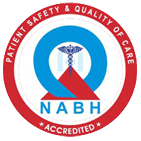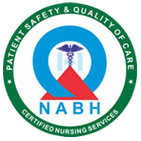FOLLOW THE MISSION HOSPITAL




When you experience nasal symptoms, you should consider making an appointment with a Cleveland Clinic allergist for a complete evaluation.
Before your appointment, you should keep a diary of your symptoms.
The season in which your symptoms occur will narrow the list of possible causes. Your doctor may wish to perform skin testing to determine which allergens are causing your symptoms. A blood test for allergy can be obtained as an alternative, but this is not as sensitive as skin testing.
Asthma refers specifically to a reaction in the airways that frequently but not always involves an allergy. The majority of adults with asthma, and an even larger majority of children with asthma have an allergy to one or more substances.
In this section on testing you will find:
An allergy skin test is used to identify the substances that are causing your allergy symptoms. It involves applying an extract of an allergen to your skin, scratching or pricking the skin to allow exposure, and then evaluating the skin's reaction.
What to expect: First, a doctor or nurse will examine the skin on your forearm and clean it with alcohol. (Sometimes, this test is performed on an area of the back.) Areas on your skin are then marked with a pen to identify each of the allergens that will be tested. A drop of an extract made from each allergen—such as pollen, animal dander, or mold spore—is placed on the corresponding mark on your skin. A small disposable pricking device is then used to ensure that the extract enters the outer layer of the skin, called the epidermis. The skin prick is not a shot and does not cause bleeding. Sometimes an additional test is performed where a small amount of allergen is injected just under the skin to determine a complete list of possible allergies.
The areas of the skin that become red and itchy indicate the substances that trigger a defensive response by your immune system. The skin reaction may be itchy.
After the test, the extracts and ink marks will be cleaned off your skin with alcohol. A mild cortisone cream will be applied to your arm (or back) to relieve any itching that may occur at the sites of the skin pricks. Keep the tested area on your arm uncovered when you go home. Your doctor or allergist will use the results of the test to help develop a management plan for you.
To prepare for the test: Antihistamines stop allergic reactions and should not be taken for 5 days before the test.
Your doctor will give you a list of medications to avoid before the test, since there are other medications (such as tricyclic antidepressants) that may interfere with the test. Give the healthcare provider who is going to perform the skin test a list of all the medications you are taking, including over-the-counter ones. Talk to your doctor about discontinuing your prescription medications prior to the test.

A Unit Of Durgapur Medical Centre Pvt. Ltd.